The political news has been dominated by the Conservative leadership battle this week. Plus lots on research funding and tough conversations on social mobility.
Collaboration between universities and business
“State of the Relationship is the National Centre for Universities and Business (NCUB) flagship annual report showcasing university-business collaboration across the UK and providing an authoritative source on emerging and critical trends in collaboration”. You can read the full report here.
BU features in a case study on page 28: ‘The Engagement Zone’ is the world’s largest study into audience’s mind-sets and responses to ‘Out-of-Home’ (OOH) advertising. In collaboration with COG Research and Exterion Media, Bournemouth University (BU) have designed and carried out this study using innovative technology to determine engagement statistics leading to increased advertising revenues on the Transport for London network (TfL).
Alice Frost of UKRI writes about the future of the relationship on page 38 with a rather complex visualisation.
Conservative Leadership Race
We’re down to the last two – Hunt and Boris – the battle of the Foreign Secretaries. Our vote tracking table follows below but first what are their positions on Education?
Boris Johnson – HEPI have blogged their opinion of Boris’ stance on education. HEPI say:
- [Boris] has the most connections to higher education of the current candidates. Johnson served as Shadow Higher Education Minister between December 2005 and July 2007 and his brother, Jo, held the post of Minister of State for Universities, Science, Research and Innovation between 2015 and 2018.
- During his time as Shadow Higher Education Minister, Boris Johnson published a piece on University Policy for the 21stCentury for the right-wing think tank Politeia, which concluded with three recommendations: proper funding (including pay increases for academic staff); less state interference; and higher access standards. He has also spoken out about [against] the categorisation of certain subjects as ‘Mickey Mouse degrees’.
Excerpt from Mickey Mouse (2007) degree article Boris wrote [still a very current debate today]:
- ..it is by now a settled conviction that the university system is riddled with a kind of intellectual dry rot, and it is called the Mickey Mouse degree. Up and down the country – so we are told – there are hundreds of thousands of dur-brained kids sitting for three years in an alcoholic or cannabis-fuelled stupor while theoretically attending a former technical college that is so pretentious as to call itself a university.
- After three years of taxpayer-funded debauch, these young people will graduate, and then the poor saps will enter the workplace with an academic qualification that is about as valuable as membership of the Desperate Dan Pie Eaters’ Club, and about as intellectually distinguished as a third-place rosette in a terrier show. It is called a Degree, and in the view of saloon bar man, it is a con, a scam, and a disgrace
- And yet I have to say that this view of higher education – pandemic in Middle Britain – is hypocritical, patronising and wrong. I say boo to the Taxpayers’ Alliance, and up with Mickey Mouse courses, and here’s why. (Read on for the rest here.)
HEPI continue: On the issue of tuition fees, Johnson spoke out against the Labour Party policy at the 2015 election, to lower tuition fees to £6,000.
And The Sun report Boris’ concerns over the level of student debt (2017).
Boris’ frequent references on the importance of female education as a ‘spanner’ while well intentioned could have been more eloquently expressed:
- The emphasis that she places on women’s commercial potential and ability to drive the economy is absolutely right, and it is one of the reasons why all UK overseas effort is focused, above all, on the education of women and girls. I believe that that is the universal spanner that unlocks many of our problems.(2017 Income Tax session)
- The universal spanner—a device that will solve almost any problem. I truly believe that female education is at the heart of solving so many other global problems, which is why we are putting it at the very centre of the Commonwealth summit in April and the upcoming G7 summit. Across our network, female education is at the heart of everything that we do. (Feb 2018 Topicals)
In addition, Boris’ leadership campaign headline education statement was on schools funding. He intends to increase secondary spending to at least £5k per pupil if he becomes PM due to “growing gulf” between students in London and the rest of the UK. This is £200 more per pupil than the Government’s current policy. Boris says:
- “Of course there are special and extra costs of living in the capital, and London schools deserve that recognition. But I pledge to reverse the cuts in per pupil funding, so that thousands of schools get much more per pupil.” Guardian (3 June)
- “This country is like a giant that is managing heroically to hop on one leg…If we fund our schools properly, if we pay sufficient attention both to vocational training as well as to mathematics and languages, then we will loosen the shackle that is holding us back.”
This argument has been refuted by Institute of Fiscal Studies. IFS says: any attempt to decrease funding differences between local authorities would be likely to reduce funds for the most disadvantaged pupils, as well as for London weighting. (source: TES) And Schools Week state Johnson’s intended school funding boost is only a 0.1% increase in overall schools spending.
His policy was criticised in the Commons. Mike Kane (Labour) said:
The right hon. Member for Uxbridge and South Ruislip [Boris Johnson] said that all schools should “level up”, that there should be no differentiation in funding formulas, and that school funding should be protected “in real terms”. There are no facts or figures behind that statement, but he obviously does not want the truth to get in the way of a good story on education (Education Funding debate, June 2019)
And his intention to cut tax attacked because it reduces the funds available to support education and health care. Lyn Brown MP (Labour):
…the right hon. Member for Uxbridge and South Ruislip (Boris Johnson), who has promised £10 billion of tax cuts. That money would pay for more than 400,000 new teachers, but of course it is not teachers or nurses who would benefit from those tax cuts. More than 80% of the financial gains would go to the highest earning 10% of families. It is clear where his priorities lie, and it ain’t in investing in our children. (June 2019, Social Mobility Treasure Reform debate)
Finally, speaking to The Sun (3 June) Boris pledged his attention for the environment. The Sun writes:
As well as promising to take Britain out of the EU at last, he made an appeal to centrist MPs by promising to protect the environment and spend more on public services. Speaking to camera, BoJo [Boris] concluded: “If there is one lesson from that referendum in 2016, it is that too many people feel left behind – that they’re not able to take part fully in the opportunities and success of our country…That’s why now is the time to unite our society and unite our country. To build the infrastructure, to invest in education, to improve the environment and support our NHS.
Jeremy Hunt – The HEPI blogs paint a different picture of Hunt’s approach to education – despite his self-confessed interest in it as a key policy area. HEPI write:
- While Hunt’s comments on higher education have been few, the issues he has chosen to speak out on are likely to be well received by the sector. In 2017, Hunt wrote for the Times Higher Education supporting the focus by universities on student mental health to tackle increased levels of student suicide.
- Hunt, as a soft Brexiteer, has stated that Brexit must be implemented, but needs to be handled in a way which ‘strengthens our higher education institutions and strengthens our economy’. At the beginning of this year he focused on the soft power brought about by the UK having three of the world’s top ten universities and 450,000 international students.
- However, Hunt was described by the head of the Royal College of Nursing as ‘hell-bent’ on reducing the numbers of nurses when he abolished nursing bursaries during his time as Secretary of State for Health, which led to a 23 per cent reduction in the number of applications to Nursing courses. This removal of nursing bursaries may suggest a commitment to the current funding model, as this change lead to spreading the regular funding model to cover nursing. His long experience as Health Secretary will likely have also given him some understanding of the importance of research.
- Jeremy Hunt also has business links to higher education, having co-founded ‘Hotcourses’ which runs websites listing courses for students around the world. He received £14.5 million from the sale of Hotcourses in 2017, making him the richest member of the Cabinet.
Who might Boris appoint to the Cabinet?
It’s a long wait until the party leader is announced on 22 July but speculation on who Boris may appoint to his cabinet has started already.
- There are three groups orbiting around Boris Johnson at the moment: his old London gang, his parliamentary long marchers, and his new recruits, who have helped to deliver his victories in the parliamentary rounds. Johnson doesn’t like being beholden to any one tribe, or faction, so expect his administration to be made up of a mix of these three groups. (Spectator.)
- Boris’s choice of Chancellor will be crucial because, no matter who is in No. 10, the rest of the government can often be run by the Treasury. Gordon Brown used that position to wage daily warfare on Tony Blair. Johnson saw for himself how Philip Hammond was able to undermine the no-deal preparations — so he’ll be determined to have someone in the job who is in agreement with him on Brexit and the importance of leaving on 31 October. Currently the media are favouring Sajid Javid as Chancellor.
It is interesting who the key Education and Universities Ministers backed as party leader at ballot 3 – it wasn’t Boris!
- SoS Damien Hinds for Gove
- Ex- Universities Minister Jo Johnson for big brother Boris
- Current Universities Minister Chris Skidmore for Javid
- SoS BEIS Greg Clark for Hunt
- Anne Milton (Minister Apprenticeships & Skills) for Gove
- Education Select Committee Chair Robert Halfon backed Javid
- And Sam Gyimah was undeclared.
When a new leader comes in we can expect to see changes at the top. Damien Hinds and Greg Clark were both appointed by Theresa May and have both proved rather resilient and hung on through the turbulent times and Brexit arguments. When the party leader is appointed Hinds will have been in post 17 months and Clark for 2 years. Ministerial changes will bring small changes for Dorset’s local MPs, some of whom hold junior Government positions. However, when the Minister they serve is moved on they (usually) resign too.
Conor Burns (BU is in Conor’s Bournemouth West constituency) served as PPS to Greg Clark (BEIS) and then Boris Johnson, during his stint as Foreign Secretary, and is an outspoken supporter of Boris. While Conor doesn’t currently hold parliamentary office might his service and loyalty to Boris be rewarded and allow him to gain status rising above the PPS ranks and/or holding party position?
- Tobias Ellwood is currently parliamentary under-secretary of state for Defence (since 2017)
- Simon Hoare (North Dorset) has served both Damian Hinds (Education) and Sajid Javid (Home Secretary) in the last two years but has just moved on to Chair the Northern Ireland Affairs select committee.
- Michael Tomlinson (Mid Dorset & North Poole) isn’t currently in post but was PPS to Raab and has previously worked for Penny Mordaunt.
Recess?
Let’s hope the MPs have insurance clauses covering their booked summer holidays. Parliament usually enters recess at the end of July. However, the party leader won’t be confirmed until 22 July. The Queen should then confirm the leader as PM. Although potentially, should Tory rebels create enough trouble, there could be two weeks in which the Opposition have the opportunity to demonstrate they can round up enough support to form an alternative Government. And if they can’t a general election would be called.
It is looking likely that Recess could be shortened and delayed (or cancelled altogether). Once confirmed we can expect the new PM to announce the key appointments within their cabinet quickly. Yet with the EU leaders absent on their long summer hols during this period how will the PM take forward the EU re-negotiations for Brexit?
Parliamentarians usually return from summer recess during the first full week of September, spend three weeks on parliamentary business, then disappear off for Party Conference season (roughly 3 weeks) taking us very close to the Halloween Brexit exit deadline.
Education Spending in England
The IfS have some new analysis on education spending in England – timely as Conservative candidates for PM rush to promise more cash in a bid to win votes. It’s a bit of a fact checking article.
- “Leadership hopeful Boris Johnson has made a commitment to ensure fair funding across schools in England. He has highlighted that some areas of London receive per pupil funding of about £6,800 whilst other parts of England receive funding of around £4,200 per pupil and referred to this as a ‘postcode lottery.’ The Department for Education has recently created a new national funding formula for schools in England, which took effect from April 2018. This ensures that school funding allocations to all local authorities in England are now based on measures of need and costs, the first time this has been the case in England for nearly 15 years. With the introduction of this formula, the government – which Mr Johnson was part of – effectively ended a long-standing postcode lottery in school funding in England.
- There are still differences in per pupil across local authorities in England. Local authorities receive higher levels of per pupil funding if they have higher levels of deprivation and/or because they have to pay London weighting. Policymakers who want to reduce differences in funding between areas should be clear that doing so would almost certainly reduce the extent of extra funding for deprivation and/or London weighting.
- Boris Johnson has also committed to a minimum level of funding for individual secondary schools in England of £5,000 per pupil. The new national funding formula already has a minimum funding level of £4,800 per pupil, but this is largely advisory and local authorities can effectively ignore it. The cost of Boris Johnson’s proposal will depend on whether his proposed £5,000 floor is also advisory or represents a new legal minimum. In both cases, however, the likely cost is likely to be relatively small in total.
- Many of the leadership hopefuls have also talked about providing a spending boost to 16-19 education, covering school sixth forms, sixth form colleges and further education colleges. Given this sector has received the largest cuts to spending per pupil over the last few years, such increased policy attention is welcome. Between 2010-11 and 2017-18, college spending per student fell by over 8% in real terms and funding per student in school sixth forms fell by 25%.
- IFS researchers are currently part way through producing new figures on 16-19 education spending per pupil for our annual report on education spending, produced with funding from the Nuffield Foundation and due out in the Autumn 2019. These new figures will address some recent complexities resulting from changes to high needs funding and the conversion of many sixth form colleges to academy status.
- In the meantime, we set out the cost of providing the same boosts to 16-19 education as we do for schools. Given an expected total spend of £5.6bn on further education colleges, school sixth forms and sixth form colleges in 2019-20, we calculate that reversing 4% of total cuts would cost about £230m in 2019-20, whilst reversing cuts of 8% increase would cost about £480m.”
TEF
There are other things happening in the UK but TEF rolls on. This year had a low participation rate and there are a lot of alternative providers and FE colleges in the list. All year two TEF awards (like BU’s) have been extended for another year to allow for changes after the independent review. We anticipate all institutions will submit in 2020 for results in 2021 under whatever new regime is designed. Wonkhe have some analysis here. Amongst this year’s results
- Bournemouth and Poole College have a bronze
- UCLAN have a silver (same as 2018)
- University for the Creative Arts have a gold (up from silver in 2018)
- University of East London have a bronze (same as 2018)
- Roehampton have a silver (up from Bronze in 2018)
- Sheffield have a silver (also silver in 2018)
- Salford have a bronze (same as 2018)
- Teesside have a silver (they also got silver in 2018)
- Sussex have a silver (they also got silver in 2018)
- Staffordshire have a gold (up from silver on 2018)
- Yeovil College has a provisional award
- University of Wales Trinity St David has a silver (up from bronze in 2018)
Research Funding
It’s been a busy week for the Lords Science and Technology Committee.
Firstly they held two sessions discussing University research funding in the light of Augar. You can read a fuller summary by Dods here. The session questioned the impact of the Augar Review upon research. The key points made were:
- UKRI said that any reduction in fees should be compensated for elsewhere with additional funding found.
- Research England said if the compensation was not forthcoming they would consider alternative resource allocation, but that the reduction would undermine the Government’s 2.4% R&D target and impact university research capabilities.
- Baroness Morgan expressed concern that substitute funding could be aimed at certain courses giving some subjects precedence over others.
- Research England repeatedly said that reducing the research funding to universities would likely limit and restrict private and business funding, and reduce universities’ capability to engage with business to make best use of this funding. Baroness Young echoed this sating to meet the 2.4% Government target an increase in public funding was critical to incentivise private funding. UKRI said the R&D funding needed to be doubled with a ‘substantial and sustained’ increase in public funding.
- Research England argued for QR funding to be sustained at current levels which he felt were an adequate level of funding.
- UKRI said that workplace culture and immigration matters were integral to attract and retain the best talent.
- Much discussion focussed on how research funding was increasingly be awarded in line with applied research that will contribute to the industrial strategy away from discovery research.
- Lord Macpherson of Earl’s Court said the Treasury was in favour of a more skilled workforce as that led to greater prosperity and increased revenue, and that the Treasury would be nervous regarding the reduction of student fees. Lord Macpherson noted that the Government might make up for the reduction in the short term but that might not be sustainable.
- Lord Macpherson went on to state research was a priority for the Government, however, there were difficult trade-offs to be made within the current context of Brexit, the housing crisis and the crisis of social care and local authority services.
Next was a session with similar themes this time answered by the Ministers and Directors. Lord Patel chaired the meeting questioning:
- Chris Skidmore, Universities Minister;
- Harriet Wallace, Director – International Science and Innovation (Dept for BEIS); and
- Paul Drabwell, Deputy Director – Science Research and Innovation (Dept for BEIS)
Skidmore was asked how much of the Augar review would be implemented. He responded that key decisions about Augar would be taken under the next prime minister and the 2019 Spending Review. That if he was still universities minister in two months, he would take forward the consultation period. Skidmore said he was under no illusions about the impact of Augar’s recommendation on fee level reductions, which would take £1.8 billion out of Higher Education (HE) and had been honest about the need for a top up to offset this, in order to keep up the ability of UK universities to finance their research.
QR research was broached next, and in contrast to the above reported session, it was recognised that QR funding had reduced. Skidmore took the side of the HE sector stating he was aware QR funding had reduced in real terms, and whilst the government had invested in the Industrial Strategy Challenge Fund, there was still a challenge in maintaining base-level, flexible research. He supported increasing QR funding (as part of the 2.4% GDP target) and hoped there would be an uplift announced ‘shortly’ on QR funding for 2019-20.
On cross-subsidisation Skidmore was questioned whether BEIS had done anything to address the potential collapse of cross-subsidy with regard to the research base in UK universities. He replied that longer term there was a wider issue about whether the cross-subsidy should be kept in place. That the premise that most courses cost less than tuition fees was an illusion and that there were a wide range of funding sources universities needed to look to, such as levering business investment and funding from charities, as well as providing doctoral training.
Paul Drabwell, BEIS, said UKRI should be looking at how research is commercialised and that UK universities needed to market themselves to investors better, particularly with regards to licencing and spin out.
The Minister agreed with the earlier sessions stating public subsidy was needed to leverage private investment in research. Lord Vallance suggested using tax credits could be a solution, however, Skidmore said that BEIS already had several ideas in play to discuss with the Treasury. He praised the grand challenges (industrial strategy) as successful in incentivising private and university collaborative efforts. Infrastructures surrounding research institutions also played an important role, he added, mentioning various initiatives such as healthy aging in Newcastle and graphene in Manchester. Furthermore, Innovate UK was currently looking at how loans could be used to incentivise SME investment into research, such as through hiring researchers.
On the research funding balance Skidmore did not think there was any trend away from funding experimental reach because of too much of a focus on applied research.
On PhD researchers needed to meet the 2.4% target Skidmore noted overall an additional 260,000 researchers were needed, PhDs contributing as part of this. However, in line with current Government thinking, he was opposed to the idea of ‘academia or bust’ for researchers, and that people should be able to work in private industry and come back to universities in the future.
Brexit – Skidmore said the UK should be making a bold offer to pay whatever was possible to retain membership of EU programmes such as Horizon and the ERC (European Research Council). Skidmore is also opposed to the £30,000 salary cap and minimum entry requirements and felt the post-study work visa was essential for the UK to be competitive with other countries.
International Students: Skidmore spoke about meeting the target for having 600,000 international (EU and non-EU) students (implying an additional 260,000) studying in the UK highlighting his recent 2020-21 home fee status for EU students announcement. He also said he was hopeful that issues around postgraduate student funding would be announced ‘shortly’. However, he noted there was an issue with regard to broadening the portfolio of countries from which students could come to the UK. Meaning the new PM would need to deal with the issue of visa fees and post-study work visas to encourage a broad range of nationalities to study in the UK. Skidmore is in favour of a milder approach to immigration in an HE context.
Two bosses
Lord Griffiths noted a recent comment from Lord Willetts (ex-Universities Minister) stating there was a mismatch with regard to departmental attitudes to university funding between the DfE and BEIS and that universities could be the sole responsibility of the DfE.
Skidmore disagreed, saying he enjoyed working across two departments and that the two departments broadly agreed on: international research and innovation, international education strategy, and the importance of the challenge-based approach. He was also concerned that being under the sole responsibility of the DfE might mean that universities lost out to funding due to campaigns to increase funding to schools. In addition, he said there was latitude for a post-18 minister on Further Education. An interesting comment, unless Skidmore is looking to expand his remit, as two post-18 ministers could compete and create friction – slowing down the progress of the sector.
There is another research funding oral evidence session next week – with Phillip Augar scheduled to be questioned on Tuesday.
Immigration Update
Following Sajid Javid’s plans for a new single, skills-based immigration system when free movement the Government is consulting with stakeholders and employers on where to set the bar within the new immigration system. A series of engagements are planned to look at the technical detail of the proposals. Several advisory groups have also been set up to discuss policy, system design and implementation. There is a specific group for education. Organisations that will be members of the Education Sector Advisory Group are listed on this link (second set down). The new immigration system will be implemented in a phased approach from January 2021.
Social Mobility
The Social Mobility Commission came under fire during this week’s Education select committee session. You’ll recall the last Social Mobility Commission resigned en masse in protest at the Government’s failure to take note and act on the Commission’s recommendations and the stalling or regression of social mobility within the UK. Six months in and Dame Martina Milburn’s new Commission was questioned on their lack of progress. Dame Marina said that the commission has not made a large impact since the most recent commissioners were appointed six months ago, but she said that this is because they have been busy commissioning new research, publishing research already in the pipeline, and figuring out the commission’s new strategy. She said the commission felt they “haven’t quite come up for air” since starting work and that, when she took over, permanent staff had been “demoralised”.
In further questioning Dame Martina had to admit that she had very little contact with Ministers and the Government had not responded to the Commission’s report on skills. She said she had not witnessed the increased engagement from ministers that was promised by the Government when the new Commission was set up.
Dame Martina was also criticised for failing to make use of the work/research already done by the previous Commission and for earmarking a £2 million budget for research. Lucy Powell MP suggested that there are plenty more “nimble” charities and research organisations delivering similar research for much less money.
The Commission said their focus moving forward is to press the Government to do more to support FE. They emphasised the need for a 16-19 pupil premium and for education to form the ‘cornerstone’ of the Commission’s strategy. Again the minister has not engaged with the Commission on FE. In response to a question from Ben Bradley MP, Dame Martina said that if a future prime minister decided to scrap the Social Mobility Commission, along with other Government commissions, and plough the money into FE, her response would be “thank God – go ahead and do it”.
The Commission was asked why it didn’t do more, e.g. set up pilot projects in FE colleges, rather than simply commissioning research. Panellists said they would welcome their remit being expanded in this way, but it is currently not possible given the constraints attached to the funding they are allocated.
Dame Martina also said that the 2020 change to T levels should be paused, but that the Secretary of State has refused to do so.
HE: In regard to HE Dame Martina insisted that the commission has “started conversations” with universities about how to ensure that fewer students from disadvantaged background drop out of their courses. She said there is a great deal higher education institutions can do to improve retention rates, including making it clearer what bursaries are available. However, it is important not to portray university as the only way of getting on in life, citing, again, the importance of FE and also of increasing the take-up of apprenticeships. Dame Martina said a majority of apprenticeships are going to people over 25, something she described as “quite urgent to address”.
Social mobility versus social justice: The Commission were questioned on whether they should be focused on the issue of social justice rather than social mobility, as few people understand what the term “social mobility” really means. Dame Martina said a social justice focus would be broader, and this would require more resources. She told the committee that social mobility is defined as a person’s ability to do significantly better than their parents, while social justice takes into account all aspects of poverty and disadvantage. She said a Social Justice Commission would still have to concern itself with social mobility.
Other Social Mobility News
Les Ebdon (ex-Head of the Office for Far Access) has been appointed as the non-executive Chair of NEON (the National Education Opportunities Network). He said: “while we have made advances in widening participation in recent years much more remains to be done to promote and safeguard fair access so that higher education can be for millions more students the life transforming experience that it was for me.” Joining him on the committee are several university officers from various WP related roles.
Nicola Dandridge, OfS, expressed her dissatisfaction at HE providers who have poor outcomes for disadvantaged students. You can read it in full here. Excerpts:
- …we [OfS] are requiring universities and other higher education providers to recruit more disadvantaged students, support them so they do not drop out and get better jobs. Some believe that achieving these outcomes simultaneously is too challenging. One argument we hear regularly is that if providers recruit students from disadvantaged backgrounds then it is inevitable that higher numbers will drop out. We do not accept that argument.
- …we see examples of students from disadvantaged backgrounds being inappropriately recruited onto poor quality courses, and not being given the support that they need. At some higher education providers, particularly those offering mainly courses below full degree level, one in five students drop out…The argument that these levels should be tolerated because the students come from poor backgrounds is not acceptable. For these students to drop out having taken on tuition fee loans of up to £9,250 a year (plus loans for living costs), is a terrible waste for student and taxpayer alike. When the latest figures show that only 41 per cent of students in England feel their course offers good value for money, parts of the higher education sector can and must do better… we need to face the facts that some students are being inappropriately recruited to courses and left to flounder.
Consultations and Inquiries
Click here to view the updated inquiries and consultation tracker. Email us on policy@bournemouth.ac.uk if you’d like to contribute to any of the current consultations.
This week there was an interesting oral evidence session on immersive and addictive technologies.
Other news
PG Outcomes: The DfE has published statistics on employment and earnings outcomes of HE postgraduates.
- On average, earnings for Level 8 graduates did not increase over time. There was a gender gap, with females earning £100 less five years after graduation in 2016/17 than they did in 2014/15, whilst males earned £700 more.
- Overall earnings for Level 7 (taught) graduates went up over time (by £800 from £30,900 to £31,700), whilst for Level 8 graduates, average earnings five years after graduation stayed the same (£36,400) between 2014/15 and 2016/17.
- For the small number of Level 7 (research) graduates who are not included in the above chart, average earnings five years after graduation went down over time but interestingly the gender gap was reversed, with male graduates earning £2,100 less and female graduates £900 less in 2014/15 than they had done in 2016/17.
Widening access: NEON report that Russel Group universities have pledge to scrap their ‘facilitating subjects’ list (preferred academic A level subjects – which ignore the arts) following criticism from ‘sector figures’ and schools stating that it limits students’ choices and narrows the school curriculum. Access HE explore how targeting could be improved to benefit widening access aims in Polar Opposite.
Subscribe!
To subscribe to the weekly policy update simply email policy@bournemouth.ac.uk
JANE FORSTER | SARAH CARTER
Policy Advisor Policy & Public Affairs Officer
Follow: @PolicyBU on Twitter | policy@bournemouth.ac.uk
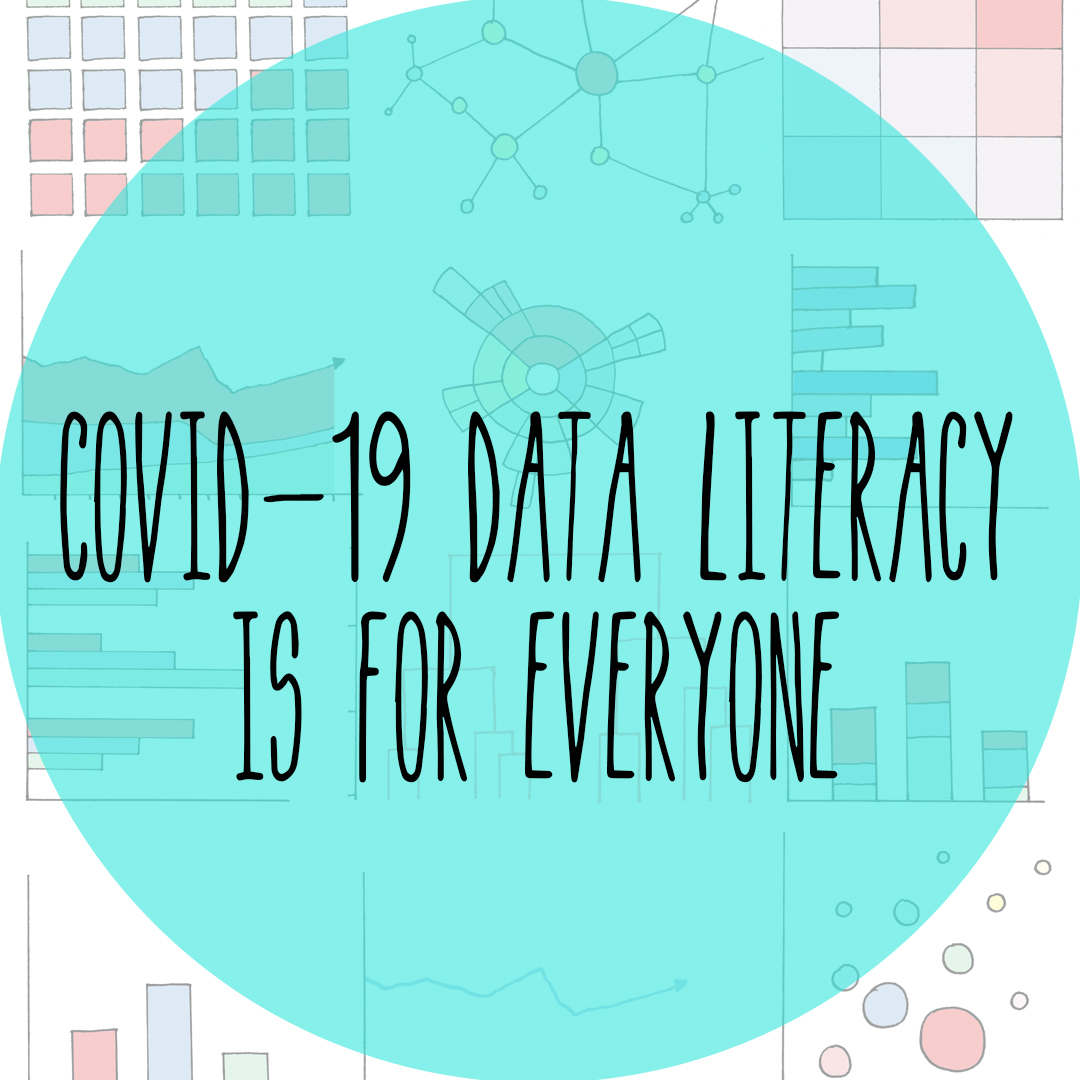



 Dr. Ann Luce, Principal Academic in Journalism and Communication in FMC has been elected to the Council of National Representatives for the International Association of Suicide Prevention (IASP).
Dr. Ann Luce, Principal Academic in Journalism and Communication in FMC has been elected to the Council of National Representatives for the International Association of Suicide Prevention (IASP).

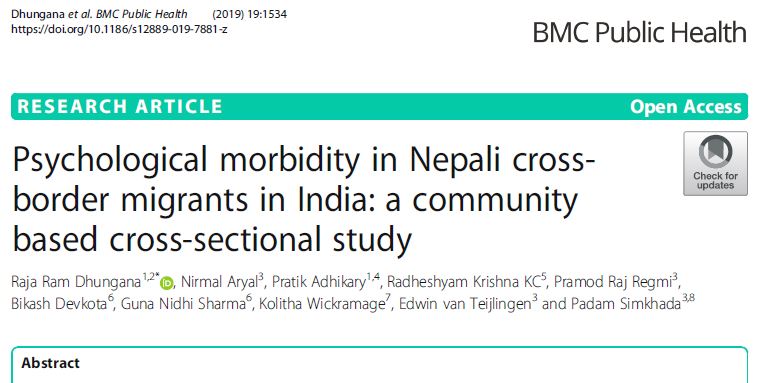

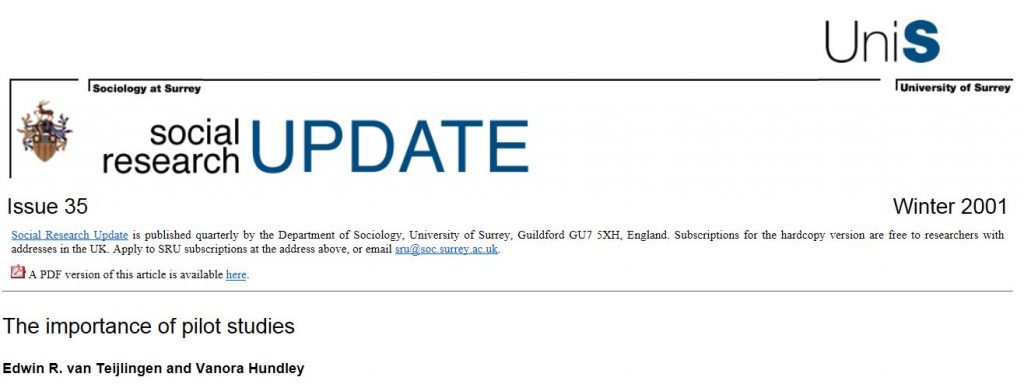












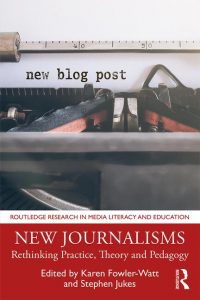
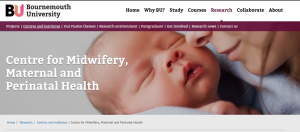


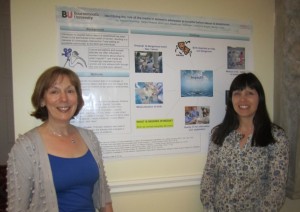
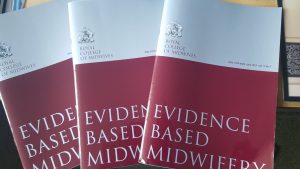











 Fourth INRC Symposium: From Clinical Applications to Neuro-Inspired Computation
Fourth INRC Symposium: From Clinical Applications to Neuro-Inspired Computation Writing policy briefs
Writing policy briefs Upholding Excellence: The Concordat to Support Research Integrity
Upholding Excellence: The Concordat to Support Research Integrity Today’s Documentation Will Serve Tomorrow’s Justice
Today’s Documentation Will Serve Tomorrow’s Justice ECR Funding Open Call: Research Culture & Community Grant – Application Deadline Friday 12 December
ECR Funding Open Call: Research Culture & Community Grant – Application Deadline Friday 12 December MSCA Postdoctoral Fellowships 2025 Call
MSCA Postdoctoral Fellowships 2025 Call ERC Advanced Grant 2025 Webinar
ERC Advanced Grant 2025 Webinar Horizon Europe Work Programme 2025 Published
Horizon Europe Work Programme 2025 Published Horizon Europe 2025 Work Programme pre-Published
Horizon Europe 2025 Work Programme pre-Published Update on UKRO services
Update on UKRO services European research project exploring use of ‘virtual twins’ to better manage metabolic associated fatty liver disease
European research project exploring use of ‘virtual twins’ to better manage metabolic associated fatty liver disease